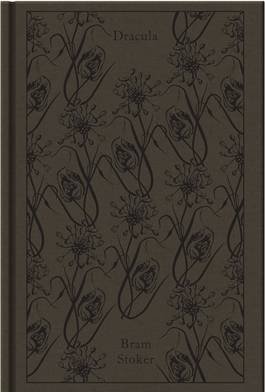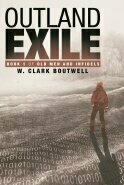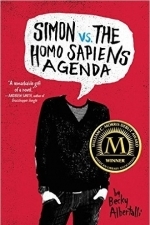Ivana A. | Diary of Difference (1171 KP) rated Dracula in Books
Oct 2, 2020
If Vampire Diaries, Vampire Academy, Twilight and the Sookie Stackhouse series pop to your mind when you first think of vampires, this book might feel extremely slow to your taste. However, if you want to experience the real horror and the building tension through many diary entries - you will enjoy this book completely.
I am a fan of both, and I had moments where I fell in love with the detailed explanations of weather and whereabouts. But the setting of writing many polite letters to people dear to the characters also made me cringe. I suppose a cringe can’t be all bad for a horror book though?
Through many diary entries of various characters, we follow their experience with the Count Dracula. Young Jonathan Harker is sent to go to Transylvania and arrange for the apartments the Count Dracula wants to buy in London. During his stay, he faces many unusual things. Meanwhile, his fiance Mina and her friend Lucy are in London, and Lucy is facing some unusual experiences herself, when Dr. Seward arrives to help better her condition.
“How blessed are some people, whose lives have no fears, no dreads; to whom sleep is a blessing that comes nightly, and brings nothing but sweet dreams.”
I knew what I was getting into, and I believe knowing this is a classic, and not a fast-paced romance with a paranormal twist put me in the right mood from the very beginning, so I was aware of what I was going into, and I really enjoyed it!
Dracula as a character is so mysterious, so powerful, very feared and secretly admired. I both loved and hated the fact that we don’t get to really see much of him, but we have to be satisfied with what the other characters are going through. And even though, he continues to be a shadow, a fear, a thought of everything they are doing. He is always there, even when he isn’t, and it requires great skills as a writer to create that presence for a character.
The characters of Lucy and Mina were very interesting - from a time perspective. How things have changed for women in all these years. What women were doing and thinking at that time, and how different it is now. I suppose I could make all the comparisons in the world - but one thing stays true will all classic books - they leave a mark of the time they were written, and this mark always gets better as time goes by.
“It is really wonderful how much resilience there is in human nature. Let any obstructing cause, no matter what, be removed in any way - even by death - and we fly back to first principles of hope and enjoyment."
I am glad I read Dracula, and I will try to read more classics in the new year. The writing style, the past of them, they remind you to take a big breath and acknowledge many things you take for granted in today’s world. In a world of page-turners, you sometimes need a slow book that makes you think deeply.

Pokémon GO
Games and Health & Fitness
App Watch
Join Trainers across the globe who are discovering Pokémon as they explore the world around them....

Pinbox - Map Your World
Navigation and Travel
App
Featured by Apple in “Best New Apps”! Plan your next trip. Mark places you want to go. Remember...

Ballistic: Standard Edition
Sports and Utilities
App
Get Ballistic Standard Edition Today!!! "I shoot on Team Louisiana Precision Rifles in Tactical...

Kill Shot Bravo
Games and Entertainment
App
Kill Shot Bravo - Play the #1 Shooter on Mobile! Become the Deadliest Special Forces Solider! Arm...

Localscope - Find places and people around you
Navigation and Travel
App
Location Browser for your iPhone Localscope is a window to your world that lets you explore your...

Chronicles of Crime: 2400
Tabletop Game
“You are Kalia Lavel. You’ve always wanted to fight crime like your famous ancestors, so you...
Night Reader Reviews (683 KP) rated Outland Exile: Book 1 of Old Men and Infidels in Books
Jan 9, 2020
The main reason that it was hard for me to initially enjoy the book was because of the authors use of short phrases. These phrases made the reading feel choppy and prevented a nice even flow. I believe this was mainly a problem because it frequently took the immersion away from the story, and jarringly forced me back into the real world as I re-read a section to see if it made more sense. I feel that many readers enjoy the immersion in a fictional world when reading a good book, so this may be a bit of an issue for some.
W. Clark Boutwell also appears to have a very good education, possibly with a large focus on the English language. The reason that I think this might be the case is because of the vocabulary found in the book, some of which seemed unnecessary. Words such as “metaphoric” “adroitly” and “remonstrations” were used, much to my initial confusion. Then there was also “pantomimed”, “sere”, and “realpolitik” that had me searching for a dictionary. On top of the strange wording at times the author also used terms such as “snakelike” and “warlike” with frequency. The amount these words were used make them almost feel overused or like errors.
The amazing plot-line of the story also offers a few different lessons that many people will have to learn in their lives. The first of these lessons is the fact that not everyone, including the government, is not always operating in your best interest. It shows that often the people who are considered to be higher-ups are more worried about themselves and their advancement than the ‘little people’ that they hurt along the way. The book also shows that a simple life is often happier than a technology-filled one, proving that the technology that is supposed to be bringing us together is also causing us to lose touch with other people at the same time. Finally, it brings to light an idea that some might find difficult to accept. That fact would be that not everything you grow up believing is necessarily the truth and that history is almost always written by the winners and the loser’s voice gets lost.
During the course of the story Malila, a Lieutenant for the Unity is sent out to Sunprairie Station with a group of bodyguards in order to repair the station. She then finds herself in the hands of Jesse Johnstone and making her way to Kentucky and stopping at a village across the Ohio River. It is here that she starts to learn just how lacking her life in the Unity was. She also learns just how much of a captive she was in her “free” Unity and how much of her supposed life there was all just an illusion.
What I liked best was watching Malila expand and grow as an individual. The author’s writing made me feel like I actually knew the characters. When tragedy struck I felt real worry and concern for them and did not want to stop reading until I knew what happened to them. On the other side, I least liked the fact that I almost gave up on reading the book early because of how slow and choppy the writing felt. The use of the obscure words made me believe there were multiple misspellings only to find that the words were just typically unused.
The target readers for this story would be young adults, starting at about high school aged and older. Concepts of pleasure sex and a few mentions of rape make this book unsuitable for most younger readers. With all of this being said I would give this book the rating 3 out of 4 because even with it being hard to get into the story was very enjoyable. The plot-line is strong and the life lessons the Malila learns are things that most people should probably learn at some point in their lives. I look forward to reading the rest of the series as it comes out.
James P. Sumner (65 KP) rated Fast & Furious Presents: Hobbs & Shaw (2019) in Movies
Aug 1, 2019
I have to admit, I had my reservations about this one. Firstly, it's basically a F&F movie... we all know what they are and what to expect, which is why we love them. Except it's not a proper F&F movie, and I was worried labelling it as part of that story universe would burden it with unrealistic expectations. Secondly, I've spent the last few months trying to avoid trailers for it, when I realised they were basically showing the entire film in them. After the first three or four, I was left genuinely concerned they had nothing left to show me. I thought there was no way they could have any eye candy that I hadn't at least seen a snapshot of.
So, I entered the cinema expecting very little. Which is probably why I left the cinema feeling very happy and satisfied.
Saying this is a F&F movie is like saying Captain America and Guardians of the Galaxy are Marvel movies. Yes, they technically are, but they are two hugely different types of movie. The similarities are obviously more prevalent here, along with the formulaic and predictable buddy-cop routine, but this film manages to confidently and successfully stand on its own two feet, and not in the shadow of Vin Diesel as I first feared.
And yes, the trailers showed snippets of pretty much every major action sequence, but weirdly, they didn't give away as much you would think. There are also some nice surprises in there. I won't spoil them, but let's just say I'm very impressed at how they managed to keep the cameos under wraps!
Okay, let's get into it. The plot (such as it is) revolves around a mysterious tech firm trying to get a hold of a deadly virus, using Idris Elba's enjoyable villain, Brixton to track it down. It takes all of five minutes for things to go sideways, leaving Hattie Shaw on the run from the bad guys. The Powers That Be (the CIA and MI6) decide they need the best bad guy trackers in the business to hunt down Brixton and retrieve this virus, and the girl... thus saving the world. The former recruits Mr. Johnson; the latter, Mr. Statham. As we know from the trailers, Vanessa Kirby portrays Shaw's sister - it becomes a family affair and we're off to the races.
The on-screen chemistry between Statham and Johnson is clear to see. The comedic dialogue they have lands a lot more than it misses. There's perhaps a bit too much gung-ho stereotyping and fan-service catchphrases, but again, you have to expect that kind of thing from a film like this.
What I liked about it was that whilst they didn't re-invent the wheel, it didn't feel like a carbon-copy of every other action film, like so many others do. It had heart. It had character. Yes, some of the stunts were silly. Yes, the bad guy being genetically-enhanced was a bit weird - blending sci-fi with real-world action whilst never actually acknowledging it took some getting used to. But the film just kinda worked. It was very good without being great. It was predictable but still managed to be enjoyable. It's a good two-hour investment of your time for an afternoon/evening out with the family.
Hobbs and Shaw is proof that whatever your criticisms, whatever your reservations, anything Dwayne Johnson touches turns to gold right now. It's also what a potential future Expendables reboot will probably look like.
Meanwhile F&F9 is now filming (sans Statham and Johnson, apparently) and with an inevitable H&S sequel surely not too far away, you can't help but wonder if they're gearing this all up to be a super-charged, car-based competitor to the MCU. The ending, two mid-credits and one post-credits scene in this film clearly set up another outing and tease a sinister, overarching enemy with ties to the character's pasts... could this be a way to link it all back to Vin Diesel and Co? Could a crossover Summer blockbuster be the only way to tell this story? If early box office figures are anything to go by here, the smart money would say yes.
Go, enjoy, eat popcorn and leave your brain and the real world in the car.
pheebs (3 KP) rated Simon vs. the Homo Sapiens Agenda in Books
Nov 23, 2017
‘The love child of John Green and Rainbow Rowell’ – Teen Vogue
“The best kind of love story.”—Alex Sanchez, Lambda Award-winning author of Rainbow Boys and Boyfriends with Girlfriends
This book is a whirlwind of emotions, as soon as I finished scouring its pages I felt as if I had to read the book all over again, I did then abruptly lent it to a friend who found it just as amazing as I did. It’s a heartfelt story which really seems to capture the essence of being a teen in modern-day society, dealing with our problems, our worries, our trials and tribulations.
The main character is Simon, a boy who is finding life hard, with an overly happy family who like to be very involved and love to talk openly about their feelings, something that Simon is finding increasingly hard more specifically with his sexual preferences. The protagonist of the story is an unlikely fellow who creates dilemmas in Simon’s mind as he wishes to save his previous ‘Blue’. Simon is surrounded by bountiful characters that link smoothly into to his life an thoughts in a normal manner. We learn about his family through his fond memories and thoughts as well as the conversations they exchange in the book, the same can be said for his closest friends. He has three friends that stand out as more prominent characters, the book also focuses on how his relations with them change and how it affects them.
The book is written in a subjective narrative, it tells us only the information that Simon knows so that we know no more or less than him, equating to us having a possibly bias view towards certain characters, thus once again making it more realistic. It deals with problems that teens struggling with their sexuality in day-to-day life face both in the real world and the cyber one. It reveals to us just how hard it is to control information that gets leaked out onto the internet, how fast it can spread and change your life in the ‘real’ world. Your life can be drastically altered by a few words and a persons malicious intentions and this book helps prove just how down heartening it can be as well as focusing on the light at the other end of the tunnel.
All of the characters play great roles in Simon’s life, he lives in a very open family so he feels as if he is keeping something terrible from them especially with of hand comments that his fathers sometimes makes. We read about different things in his life that he loves such as drama, as he attends school play rehearsals often.he deals with the struggles of maintaining friendships under pressure.
I would recommend this book to anyone no matter their age, race, gender or sexual preference. It’s a romantic coming of age comedy that warms me to my toes making me wanting to keep reading over and over again (as I have done many a time). If you liked ‘Will Grayson, Will Grayson’ by John Green and David Levithan then you will most definitely enjoy this book.



